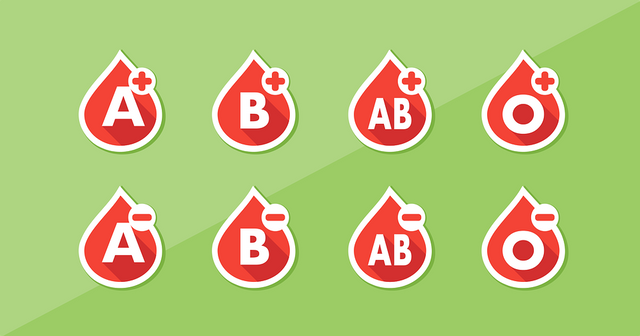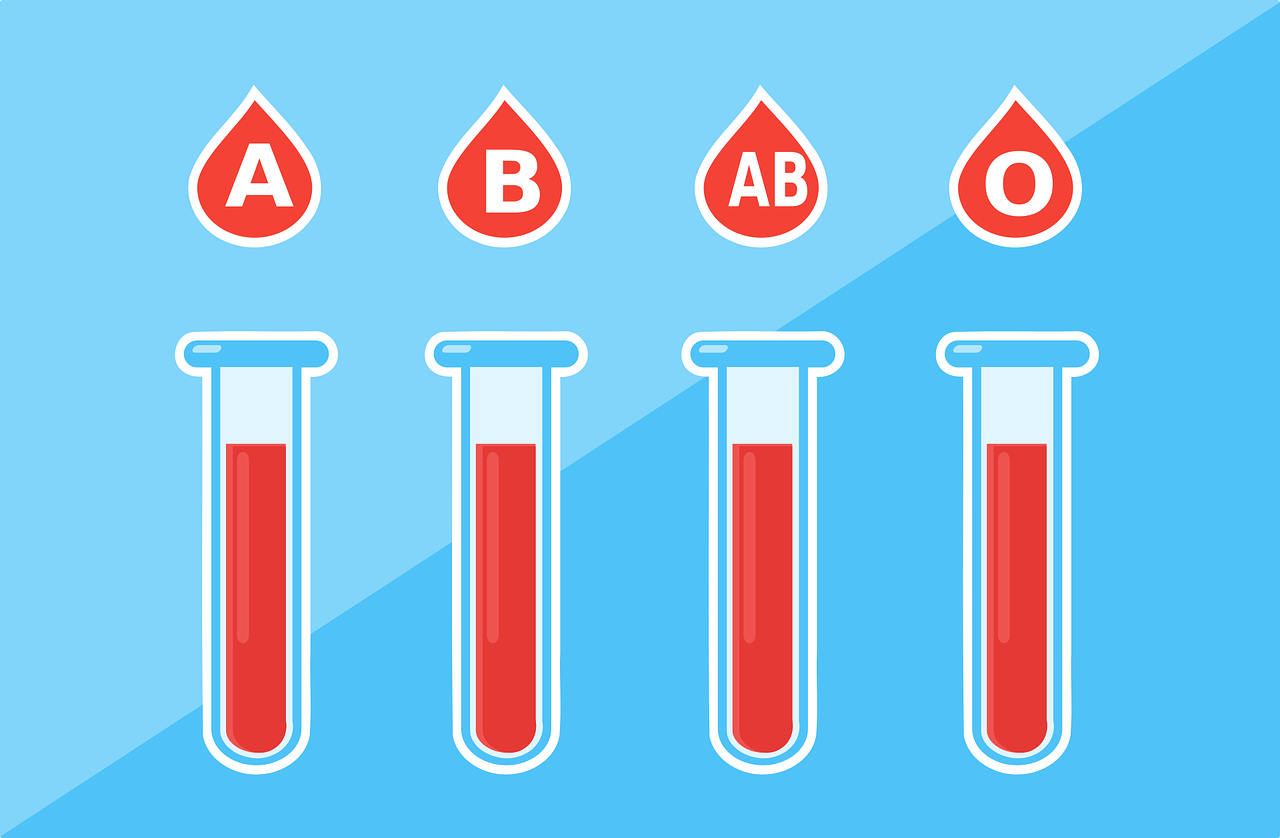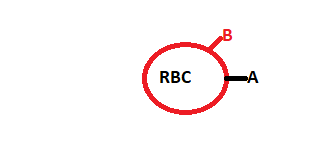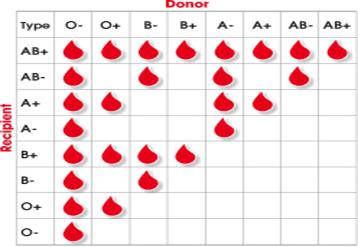Human Blood Systems and Types
HEY STEEMIANS!
 Source: https://pixabay.com/p-1968457/
Source: https://pixabay.com/p-1968457/
There are 33 different blood group system identified by the International Society of Blood Transfusion. Amazed! Right? I was. I was taught about the systems and types in high school, but this isn't actually my field of study. It had been a long time so did a little research about it and the first line of this post is what i saw and was amazed. What i read was that there were basically two systems, but turns out they are the only two in a pool of many and the most famous ones.
Before i start rambling on and on, there are some prerequisites to it. It is to help you better understand the post. I've tried my best to make it as simple as possible, also in a way that a layman could even understand it.
These are the terms that will be encountered at some point during your reading of the post. These are simple terms and have not included the complex terms like allele, the genetics involved and many others.
Prerequisite Section
Antigen(s): Foreign Substance that triggers an immune response in the human body. Basically, they are the bad guys, the villains, the Voldemorts in the world of Harry Potters (Human Body).
- The human body also produces antigens, which are known as self-antigens. And the immune system doesn't react to these.
- Meaning, if the antigen that is not found in one's body, the body will launch an full out attack against this antigen.
Antibodies: If your body is a castle, then these are what defend it from different foreign atrocities. It is a protein that gets produced in response to the antigen(s) entering your body. They attach themselves with the antigens to neutralize it. Savior of a kind!
- Human body has a lot of different antibodies, each of which is specialized to recognize a certain type of antigen.
- Is Y shaped.
Blood Cells: Mainly there are three different types of blood cells. They are:
- Red Blood Cells (RBCs): Also known as Erythrocytes. Primary function of carrying oxygen and transporting the Carbon-Dioxide to the Lungs.
- White Blood Cells (WBCs): Also known as Leukocytes. The cells of the immune system.
- Yellow Blood Cells(YBCs) or Platelets: Also known as Thrombocytes. Primarily Involved in Clotting.
Together these cells make up the 45% of the blood tissue by volume. The rest 55% is composed of Plasma, the liquid component of the blood, Main producer of antibodies.
Main Section
The Blood Group Systems
33 different system, all of them based upon a certain antigen or antigens,which are over (I can't put a number to it). But will be talking about the two most famous systems.
1. The ABO Blood Group System

Source: https://pixabay.com/en/blood-blood-type-health-medical-1968458/
The most famous type of blood group system, credited to have been discovered by an Austrian Scientist Karl Landsteiner in 1900. It is widely in use with the Rhesus(Rh) System together. But this section will be only about the ABO System. When talking about the blood type, we mainly concern ourselves with the Red Blood Cells(RBCs) and the types of antigens(self) present or absent on the surface of the cell. Depending upon these, the system has divided into three blood group types.
a. Blood Type A
 Figure: Type A antigen on the surface of RBC (Made in paint)(Schematic Diagram :))
Figure: Type A antigen on the surface of RBC (Made in paint)(Schematic Diagram :))
A is a name given to a specific type of antigen attached to the surface of RBCs. Let's not give that much importance to the structure of the type A antigen. But keep in mind that Antigen A are different from that of Antigen B, hence the name.
People having this blood group type will have antibodies against type B Group. So, no transfusion occurs between Type A and Type B.
b. Blood Type B
 Figure: Type B antigen on the surface of RBC
Figure: Type B antigen on the surface of RBC
.People having this blood group will have antibodies against type A group.
c. Blood Type AB
 Figure: Type AB antigen on the surface of RBC
Figure: Type AB antigen on the surface of RBC
Both type of Antigens are found on the surface of the RBC hence, can transfuse blood from both type A and type B, as both the types of antigens are already found inside the body and none are treated as hostile objects. They can also receive blood from Type O. Hence, Universal Receptor.
d. Blood Type O
 Figure: Type O with no antigen present on the surface.
Figure: Type O with no antigen present on the surface.
They don't have any antigens on the surface of their RBC. Type 0(zero) would have made a lot more sense! Hence, they can transfuse their blood to any types mentioned above. Universal Donor!
Let us say that a person of Type A is getting blood from a Type O person. Since, Type O doesn't have any antigens attached on the surface, the body of Type A doesn't recognize it as a foreign object and hence, doesn't produce any antibodies.
Structure Of Type A, B and Type O
Source: https:///upload.wikimedia.org/wikipedia/commons/f/f5/ABO_antigens.JPG (Had to insert an extra / to stop the image from showing up)
But wait, Something's missing! If I came up to you and asked you your blood type, would you say it's A, or A+ or A-, if your type happens to be A. So, the positive'+' or negative'-' seems to be missing.
That's where the Rh-System Comes into play.
2. The Rhesus(Rh) Blood Group System
The Second most popular system after the ABO, named after it was discovered in the Rhesus Monkey in 1937 by Karl Landsteiner and Alexander S. Wiener. About 50 of the blood group antigens is contained in this type out of which 5 are considered important. D, C, c, E and e. You don't need to remember any of these, just that the names are given based upon the composition and structure of the antigen present on the surface of the RBC.
For now, we only consider whether you are Rh positive or Rh negative. So, if the antigens are present then you're considered Rh positive and if they are absent then you're considered Rh negative. Just as Type O lacks both Type A and Type B antigens.
For the same reason as mentioned before in the Type O Group, the Rh -ve can donate to the Rh positive but not vice-versa.
Together these two systems make up the blood system that is widely used and accepted throughout the world.
Who Can Donate to Whom Section
 Source: https:///upload.wikimedia.org/wikipedia/commons/b/b5/Apangshu_Find_Blood_Group.jpg(An extra slash again)
Source: https:///upload.wikimedia.org/wikipedia/commons/b/b5/Apangshu_Find_Blood_Group.jpg(An extra slash again)
Now, you don't need to learn by heart the who can receive the blood from whom table. When both the ABO and the Rh system are considered together, there are 8 different types of blood groups. A, B, AB and O with both Rh positive and Rh negative.
As we saw in the above section that the cells who don't have the antigens present can donate to the person who have the antigens, don't miss out on the part where they can also donate to the person who doesn't have the antigens.
O negative:
- Lacks both type A and B and is Rh Negative. Hence, can donate to any blood group type. So, O- is the actual Universal Donor.
AB positive:
- Have both Type A and B and is Rh positive. Can Receive blood from all A, B, O and AB of both Rh positive and negative, is known as the Universal Receptor.
I guess, now, nobody will have to memorize the table. I hope you all learnt something, I know I did. I may have made some mistakes as this is not my exact field of study, but hope you will all forgive me for those.
Some Misconceptions about Blood Group Types:
- We've all seen this bullshit about how the personality of a person depends upon the blood group Type. Again, this is nothing but a bullshit.
- Also, what foods certain types need to eat to remain healthy or look beautiful. Well, if you were to listen to me eat food so your body can still produce the blood cells and also to survive. Stop believing in all these nonsense.
References:
1. https://www.ncbi.nlm.nih.gov/pmc/articles/PMC4260296/
2. https://www.redcrossblood.org/learn-about-blood/blood-types.html
3. http://www.scienceclarified.com/Al-As/Antibody-and-Antigen.html
4. https://en.wikipedia.org/wiki/ABO_blood_group_system
5. https://en.wikipedia.org/wiki/Rh_blood_group_system
6. https://en.wikipedia.org/wiki/Human_blood_group_systems
Images
The discord Channel of steemStem made me realize that i was using the images without even knowing whether or not they were allowed to use for commercial purpose. So, in this post I've used all the pictures that are free to use for commercial as well as non-commercial purpose. No Copyrights were violated.
For free images: https://pixabay.com/
steemStem

SteemSTEM is a community driven project which seeks to promote well-written and informative Science, Technology, Engineering and Mathematics posts on Steemit. The project involves curating STEM-related posts through upvoting, resteeming, offering constructive feedback, supporting scientific contests, and other related activities.
DISCORD: https://discord.gg/rcGJm2
This is a test comment, notify @kryzsec on discord if there are any errors please.
Being A SteemStem Member
Thank you :)
33? But you only mentioned 8 of them in your article. Do you have more information on this?
Hey! Sorry for the late reply. Was at the university the whole day.
The 8 blood groups mentioned are not system themselves but they lie under two systems mentioned above, where A, B, AB and O comes from the ABO system whereas the 'positive' and the 'negative' comes from the Rh system.
To name a few other systems: H antigen system, MNS antigen system, Duffy system.
But I don't have any knowledge about these systems (yeah, i googled them :)), Sorry.
Thanks for coming back to me. I will thus google that too ^^
You deserve an upvote! Clearly a lot of effort. Hope this post gets what it deserves :)
Thank you for your nice words. :)
@resteemator is a new bot casting votes for its followers. Follow @resteemator and vote this comment to increase your chance to be voted in the future!
Yes, I remember learning about this in Biology a few years ago but had forgotten. Blood is fascinating!
Yeah, it is. :)
Interesting and simple explanation! Loved the Harry Potter reference, haha. Well, it is great to be universal recipient (AB+ here) and I do not feel that bad, when I dont donate blood (because is really not that useful).
Thank you. Glad you liked it.
Well, it is. You could save someone's life and also is much beneficial to the donor.
The chances of cardiovascular disease go down and there are many more health benefits.
You should go out and do it more often. :)
You got a 0.90% upvote from @postpromoter courtesy of @eyedeology!
Want to promote your posts too? Check out the Steem Bot Tracker website for more info. If you would like to support the development of @postpromoter and the bot tracker please vote for @yabapmatt for witness!